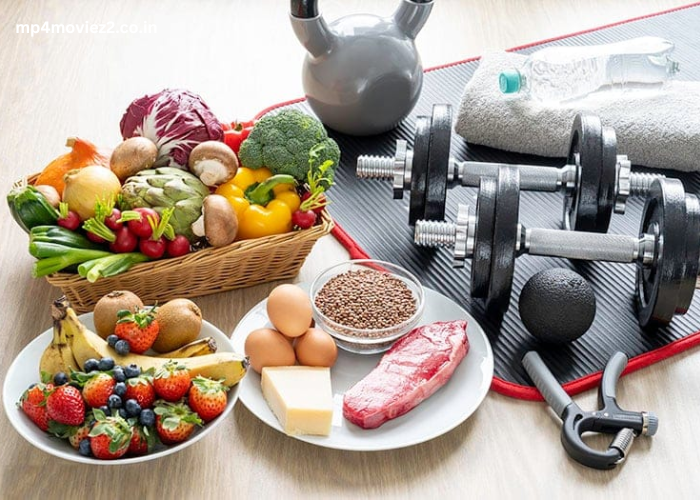In today’s fast-paced world, maintaining peak wellness is more than just about working out or getting enough sleep. It’s about fueling your body with the right nutrients, adopting sustainable lifestyle habits, and taking a mindful approach to what you eat. Good nutrition is the foundation for mental clarity, sustained energy, immune defense, and overall physical well-being.
When you fuel your body with the proper nutrients, it can perform at its best, allowing you to live a vibrant, energetic life. But it’s not just about eating “healthy” – it’s about understanding what your body needs and delivering it consistently. In this guide, we’ll explore how to fuel your body for peak wellness with smart nutritional choices and healthy lifestyle habits.
Key Points:
- Fueling your body with nutrient-dense foods helps support energy and longevity.
- Balanced eating habits are the cornerstone of maintaining peak wellness.
- Hydration and lifestyle habits also play a vital role in overall wellness.
What Does Peak Wellness Look Like?
Peak wellness is the state where your mind, body, and spirit function at their highest potential. Achieving this requires more than just a good diet; it also involves mental well-being, physical fitness, and self-care. Nutrition plays a huge role in supporting all of these areas, as the foods you consume fuel your energy levels, promote good digestion, and support your immune system.
Components of Peak Wellness:
- Nutrient-Dense Foods: Eating whole, minimally processed foods that are rich in vitamins, minerals, and antioxidants.
- Regular Exercise: Movement supports heart health, strengthens muscles, and enhances mental clarity.
- Mental Wellness: Taking care of your mental health through relaxation, mindfulness, and emotional well-being practices.
- Rest and Recovery: Sufficient sleep and downtime allow your body to repair and regenerate.
To truly fuel your body for peak wellness, you need to focus on providing your body with everything it needs to thrive. This means not just focusing on food but also incorporating regular exercise, rest, and mental health practices into your routine. Remember: Peak wellness is a holistic approach that balances all aspects of health.
| Wellness Component | Benefits | Examples |
|---|---|---|
| Nutrient-Dense Foods | Provides vitamins, minerals, and energy | Vegetables, fruits, whole grains |
| Regular Exercise | Strengthens muscles, improves cardiovascular health | Walking, swimming, strength training |
| Mental Wellness | Reduces stress, improves focus and clarity | Meditation, journaling, relaxation |
| Rest and Recovery | Promotes healing, mental clarity, and vitality | 7-9 hours of sleep, relaxation techniques |
How Can Nutrition Fuel Your Wellness?
Nutrition is the cornerstone of wellness. The foods you eat directly influence your energy levels, immune system, metabolism, and even your mood. It’s essential to make the right food choices that fuel your body with the nutrients it needs to function optimally.
Key Nutrients for Peak Wellness:
- Complex Carbohydrates: Provide sustained energy and improve brain function. Whole grains like quinoa, oats, and brown rice are excellent sources.
- Lean Proteins: Support muscle growth, repair, and recovery. Chicken, fish, tofu, and legumes are great protein choices.
- Healthy Fats: Essential for brain health, hormone production, and inflammation reduction. Avocados, olive oil, and fatty fish are high in omega-3 fatty acids.
- Vitamins and Minerals: Essential for immune function, bone health, and energy production. Include a variety of colorful fruits and vegetables in your diet to get a wide range of these nutrients.
Nutrition is not a one-size-fits-all approach. Your body needs a variety of nutrients to operate at peak efficiency, and the best way to achieve this is by eating a balanced, varied diet that provides everything your body requires. Reminder: Don’t neglect the importance of micronutrients (vitamins and minerals) as they support many of the body’s critical processes.
| Nutrient | Benefits | Examples |
|---|---|---|
| Complex Carbs | Provide sustained energy for workouts and daily tasks | Oats, quinoa, sweet potatoes |
| Lean Proteins | Build and repair muscles, support metabolism | Chicken, salmon, lentils |
| Healthy Fats | Improve brain function, reduce inflammation | Avocados, walnuts, olive oil |
| Vitamins & Minerals | Support immune system, energy production | Spinach, citrus fruits, sweet peppers |
Why Hydration is Essential for Peak Wellness
While nutrition is essential, hydration is just as important for achieving peak wellness. Water is crucial for maintaining the balance of bodily functions such as temperature regulation, digestion, nutrient absorption, and cellular function.
Tips for Staying Hydrated:
- Drink Water Regularly: Aim to consume 8-10 cups of water per day, depending on activity level and environment.
- Incorporate Hydrating Foods: Fruits and vegetables like watermelon, cucumbers, and celery contain a high water content and can help support hydration.
- Avoid Dehydrating Drinks: Limit caffeine and sugary beverages, as they can contribute to dehydration and energy crashes.
Hydration supports your body’s internal processes, and staying hydrated can boost your energy, improve cognitive performance, and even enhance your skin health. Note: Carry a water bottle with you throughout the day to stay consistently hydrated.
| Hydration Source | Benefits | Examples |
|---|---|---|
| Water | Supports digestion, energy, and cognitive function | Plain water, herbal teas |
| Hydrating Foods | Replenishes fluid levels and provides nutrients | Cucumbers, watermelon, oranges |
| Limit Sugary Drinks | Prevents dehydration and maintains energy levels | Herbal teas, infused water |
How Can Lifestyle Habits Contribute to Peak Wellness?
While nutrition and hydration are important, lifestyle habits also play a significant role in fueling your body for wellness. Adopting healthy lifestyle practices—such as regular physical activity, managing stress, and getting adequate sleep—helps improve your overall well-being.
Key Lifestyle Habits for Wellness:
- Exercise Regularly: Incorporating cardiovascular, strength, and flexibility exercises into your routine can boost heart health, increase stamina, and reduce stress.
- Manage Stress: Chronic stress can impact your health, so practicing relaxation techniques such as deep breathing, yoga, or mindfulness is essential.
- Prioritize Sleep: Aim for 7-9 hours of restful sleep each night. Sleep is when your body repairs and regenerates, and it also supports mental clarity and emotional well-being.
Peak wellness is the result of a balanced approach to food, hydration, and overall lifestyle choices. By incorporating these habits into your daily routine, you’ll ensure that your body is fully supported in achieving its highest potential. Reminder: Consistency is key—make these habits part of your everyday life to achieve lasting wellness.
Conclusion: Fuel Your Body for Peak Wellness
Fueling your body for peak wellness requires a holistic approach. By focusing on nutrient-dense foods, staying hydrated, exercising regularly, and adopting positive lifestyle habits, you can optimize your health and well-being. Peak wellness is achievable when you prioritize your physical, mental, and emotional health through smart nutrition and healthy living practices.
Remember that wellness is a journey, not a destination. By fueling your body with the right nutrients and committing to healthy habits, you’ll unlock your potential and enjoy a long, vibrant life. Start today by making small changes that will lead to big benefits down the road.
FAQ’s
- What foods should I eat to fuel my body for peak wellness? Focus on whole foods like fruits, vegetables, lean proteins, whole grains, and healthy fats.
- How much water should I drink for peak wellness? Aim for at least 8-10 cups of water a day, adjusting for physical activity and climate.
- What exercises are best for peak wellness? Incorporate a mix of cardiovascular exercise, strength training, and flexibility exercises for optimal fitness.
- How does stress affect my wellness? Chronic stress can impact your health negatively, contributing to anxiety, digestive issues, and weakened immune function.
- How can I improve my sleep for better wellness? Aim for 7-9 hours of sleep, establish a bedtime routine, and avoid screens before bedtime to improve sleep quality.




